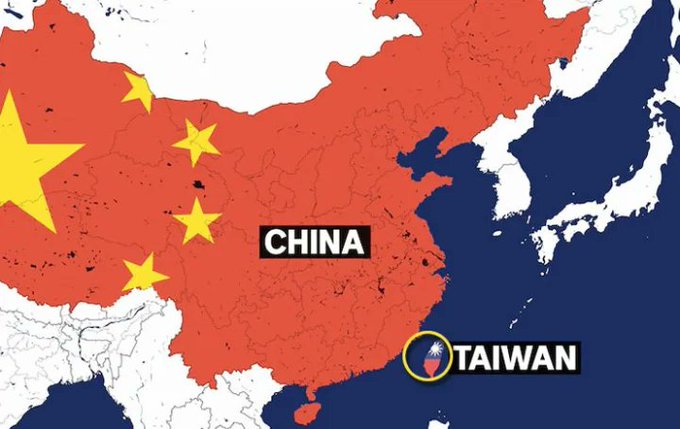Last Updated: September 26, 2025, 07:08 PM

China-Russia Taiwan Invasion Support has become a focal point in global security discussions. Recent revelations reveal a deepening military collaboration between China and Russia, aimed at strengthening China’s preparedness for a potential Taiwan invasion. Leaked documents indicate significant transfers of advanced military equipment, strategic planning, and training initiatives.
Experts emphasize that China-Russia Taiwan Invasion Support includes not only high-tech weapons but also joint military exercises and operational training. Russian advisors are assisting Chinese forces in combat tactics, logistics, and coordination strategies, which could dramatically alter the balance of power in the region.
The strategic implications of China-Russia Taiwan Invasion Support are significant. Such cooperation could embolden China’s actions in the Taiwan Strait, posing challenges to U.S. and allied interests in the Indo-Pacific. The alliance also signals a shift in global military alignments, increasing geopolitical tension.
- Russia has supplied advanced missile systems and armored vehicles to China.
- Joint strategic exercises are enhancing coordination between both militaries.
- Analysts warn of heightened regional military tensions.
- Western nations are monitoring the developments to formulate counter-strategies.
Long-term consequences of China-Russia Taiwan Invasion Support could reshape international security frameworks. Nations worldwide may need to reassess defense policies, alliances, and diplomatic approaches in response to this deepening partnership.
The ongoing China-Russia Taiwan Invasion Support underscores the strengthening of Sino-Russian relations and highlights a critical shift in global geopolitics. The international community continues to watch closely as this collaboration develops, emphasizing the need for strategic vigilance to prevent escalation.
China-Russia Taiwan Invasion Support Strategic Military Cooperation
Russia has agreed to supply China with sophisticated military hardware, including airborne-capable vehicles and artillery systems. These assets are designed to support rapid deployment and operations in challenging terrains, such as the Taiwan Strait. The provision of such equipment aims to bolster China’s capabilities for a swift and effective military operation.
The two nations have conducted joint training programs, focusing on airborne assault tactics and amphibious operations. These exercises aim to enhance interoperability and ensure coordinated actions during potential military engagements. The training includes specialized instruction in the use of advanced military equipment and strategies.
China and Russia are reportedly sharing intelligence and strategic insights to align their military objectives concerning Taiwan. This collaboration is intended to synchronize their efforts and strengthen their positions in the region. The sharing of intelligence enhances the effectiveness of their combined military strategies.
Implications for Taiwan
The bolstered military capabilities of China, supported by Russian expertise and resources, pose a significant threat to Taiwan’s security. The potential for a well-coordinated and rapid military action has increased concerns about Taiwan’s defense readiness. The enhanced threat underscores the urgency for Taiwan to strengthen its defense capabilities.
The growing military alliance between China and Russia has raised alarms among neighboring countries and global powers. There is heightened anxiety over the potential destabilization of the Indo-Pacific region and the broader international security landscape. The alliance may shift the regional power balance and provoke strategic realignments.
China-Russia Taiwan Invasion Support Global Reactions
The United States has expressed deep concern over the China-Russia military collaboration. Increased diplomatic efforts and military preparedness are being considered to counterbalance the growing influence of this alliance in the region. The U.S. is evaluating its strategic options to maintain regional stability.
Countries in the Indo-Pacific region, including Japan and South Korea, have reiterated their commitment to Taiwan’s security. Joint military drills and enhanced defense cooperation are being explored to deter any aggressive actions. These nations are strengthening their defense postures in response to the evolving security dynamics.
Conclusion
The strengthening of military ties between China and Russia marks a significant shift in regional dynamics, particularly concerning Taiwan. The strategic implications of this alliance necessitate careful monitoring and preparedness from global powers to maintain peace and stability in the Indo-Pacific region. Ongoing diplomatic efforts and defense initiatives will be crucial in addressing the challenges posed by this growing military cooperation.
- Joint efforts between China and Russia to strengthen China’s military capabilities
- Includes arms transfers, training programs, and strategic planning
- Aimed at enhancing China’s readiness in a potential conflict with Taiwan
- To enhance China’s operational readiness and tactical advantage
- Share strategic expertise and advanced weapons technology
- Strengthen overall military coordination and preparedness
- Advanced weapons systems and parachute-capable armored vehicles
- Anti-tank guns and airborne munitions
- Joint training programs and maintenance workshops for operational readiness
- Increases risks of airborne and amphibious operations by China
- Prompts Taiwan to strengthen defenses and early-warning systems
- Civil preparedness and emergency response measures are being enhanced
- Heightened tensions across the Indo-Pacific region
- Neighboring countries may increase defense spending
- Allies could expand intelligence sharing and contingency planning
- Some arms transfers may breach international agreements or sanctions
- Raises questions about legality and global compliance
- Could prompt investigations by international organizations
- Monitor equipment transfers and military exercises closely
- Strengthen regional alliances and conduct joint military drills
- Use diplomatic channels and targeted sanctions to reduce escalation risks
